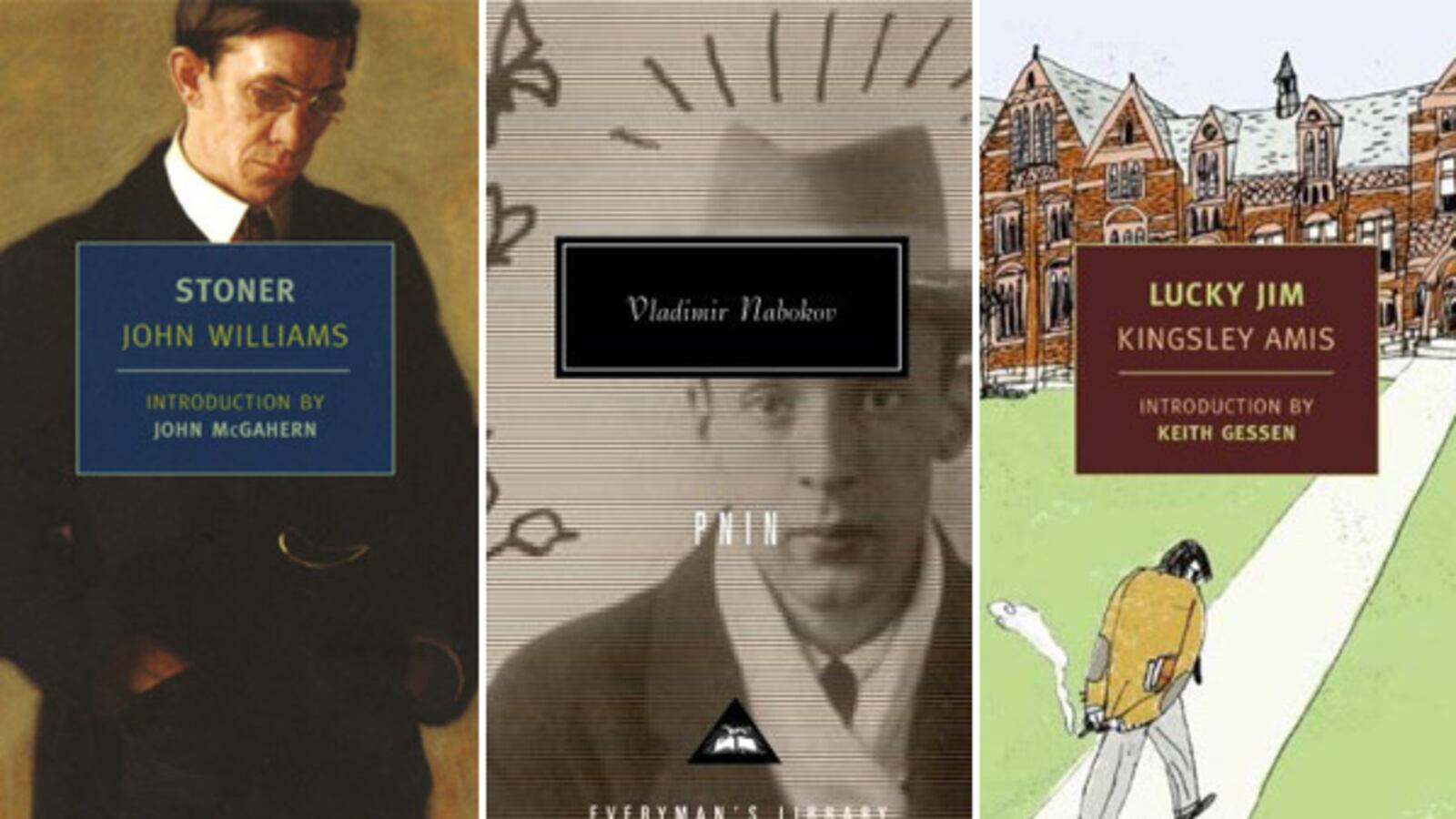Even when you have finished your schooling, it's hard to forget the gut-churning excitement, the strange objectless yearnings, that accompany the beginning of the academic year. This is as true, I think, for kindergartners as it is for those completing their final year of college (graduate school, by all reports, is another, far more hellish story). But it is perhaps most intense during our undergraduate days. This mingled ease and pain attains to a special plangency in America, where the past, perhaps because we have so little of it, becomes mythic almost immediately, which I proffer as a reason for the preponderance of American books among those mentioned below. Or you can blame my deep-seated jingoistic urges. And with that rather autumnal preface, here are eight of the very best books providing the drug of nostalgia we all crave, now that we're sliding down—as Tom Lehrer once sang—the razor blade of life.
By Neal Stephenson
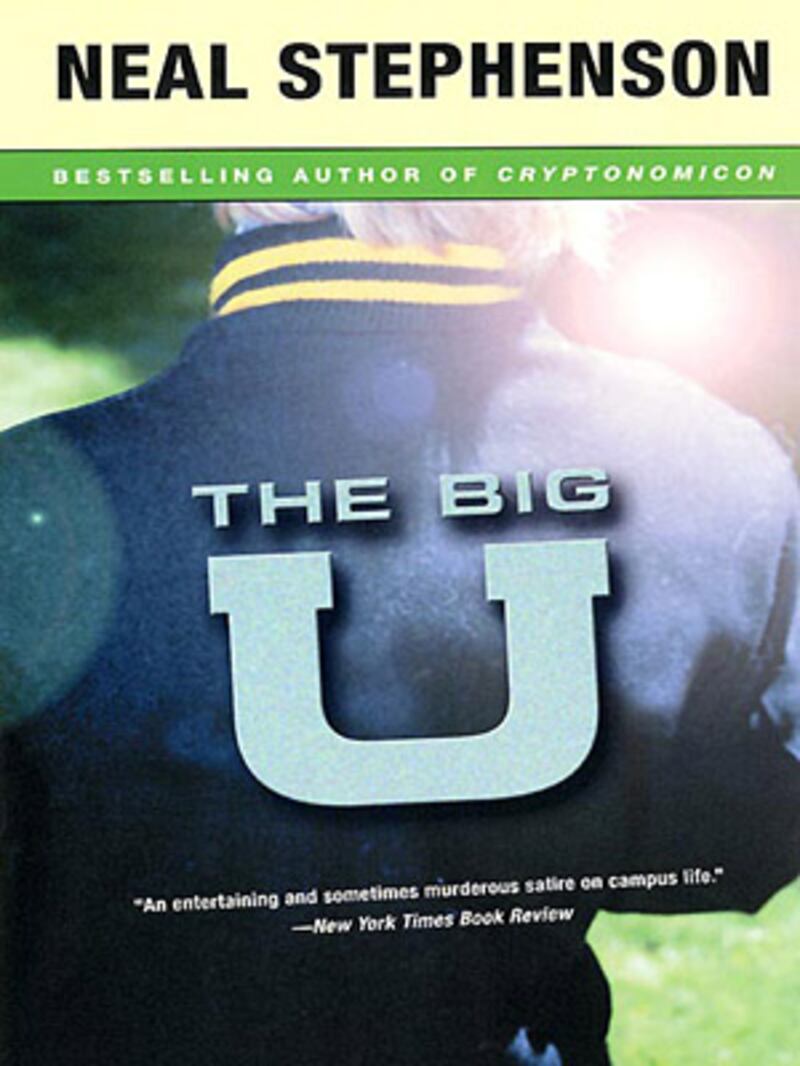
Neal Stephenson is best known as the author of the brilliant and seminal cyberpunk/steampunk texts Snow Crash and The Diamond Age; Cryptonomicon, a masterful novel of war, cryptography, Nazi gold, and the invention of digital computing; and an epic (and disappointing) three-volume historical romance called The Baroque Cycle. Stephenson, I am happy to say, has it made nowadays. This was not always so: his first novel, The Big U was unjustly overlooked when it appeared. Thankfully, it's back in print: a piercing satire of life at large state schools in the 1980s, involving Dungeons and Dragons, a cult of drug-addled neon worshippers, potential nuclear apocalypse, and—first order of business for many upon arriving at college—getting laid. This is to say nothing of the deft political satire and high sense of social comedy that pervade the book. Not to be missed!
By Penelope Fitzgerald
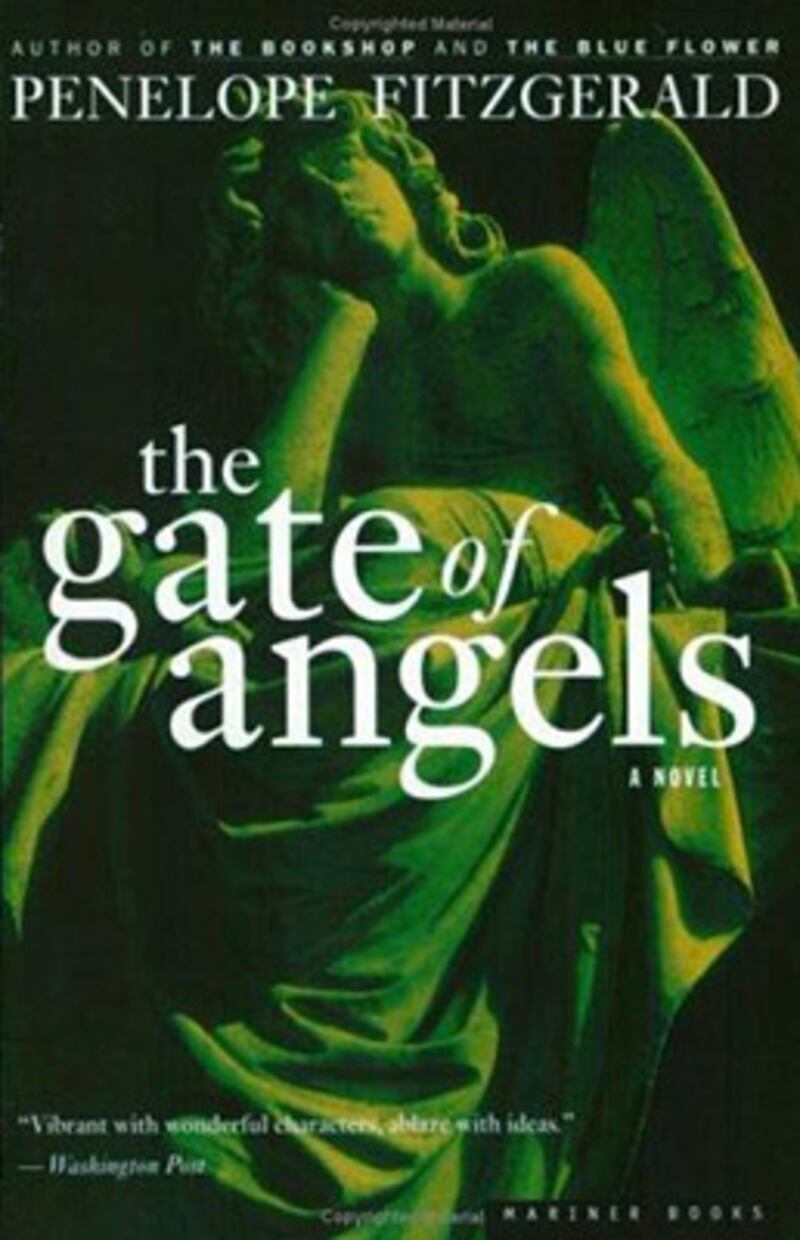
Novels about scientists tend to be ponderous. But Penelope Fitzgerald, a brilliant and still-underappreciated British writer of mercurial wit, athletic intellectual versatility, and a psychological acumen that well bespeaks her brilliant and eccentric roots (daughter of Punch editor Edmund Knox; niece of theologian/crime writer Ronald and math genius/cryptographer Dillwyn) never wrote anything ponderous in her life. The Gate of Angels tells the strange, eventful story of Fred Fairly, a physicist and recent atheist, and Daisy Saunders, a nurse with an uncommonly strong character and mind. Fairly studies at the fictional Cambridge college of St. Angelicus, from whose grounds all females are forever banned; Daisy has just lost her job at a hospital. They meet in a violent rainstorm. The year is 1912. Physics—and, indeed, the rest of the world—stands at the cusp of an epochal change. Fairy tale, philosophical text, love story, work of perfect artifice: all of these terms (happily) apply.
By Kingsley Amis

Kingsley Amis's first and best novel, and one of the founding books of the genre. Jim Dixon, a Ph.D. candidate at a third-rate provincial British university, suffers through a hellish weekend party at the home of his moronic advisor, sexual and professional humiliations, and insanities and inanities of academic life, until he meets Christine Callaghan—who is either his salvation or his worst nightmare. The plot is slight, even formulaic, but Jim is as manically fascinating now as he was in 1954: deranged, desperate, passionate, petty, crafty, and uncomfortably recognizable. Watch especially for the bedsheet mutilation scene and the fistfight with Bertrand, comic set-pieces unparalleled in all of Amis's later work.
By Martin Amis

What's a Kingsley without a Martin? Another first, best novel. Young Charles Highway, inveterate masturbator and auto-dermatologist, has to cram for his college entrance exam and cope with his nauseating father's professional success and copious infidelity (any resemblance to real persons, living or dead, is purely coincidental, of course) while struggling to seduce the titular Rachel. Charles is one of the rawest and most hilarious adolescents in contemporary English literature; his serial confrontations with sex, love, and his stark, growing self-knowledge call to mind the sufferings of Dostoevsky's great agonized narrators (of Notes from the Underground and A Raw Youth especially) without ever puncturing the book's buoyant, half-daft humor. (Nota bene: Skip the 1989 Damian Harris film adaptation. A letdown, despite its top-notch ensemble cast.)
By Mary McCarthy
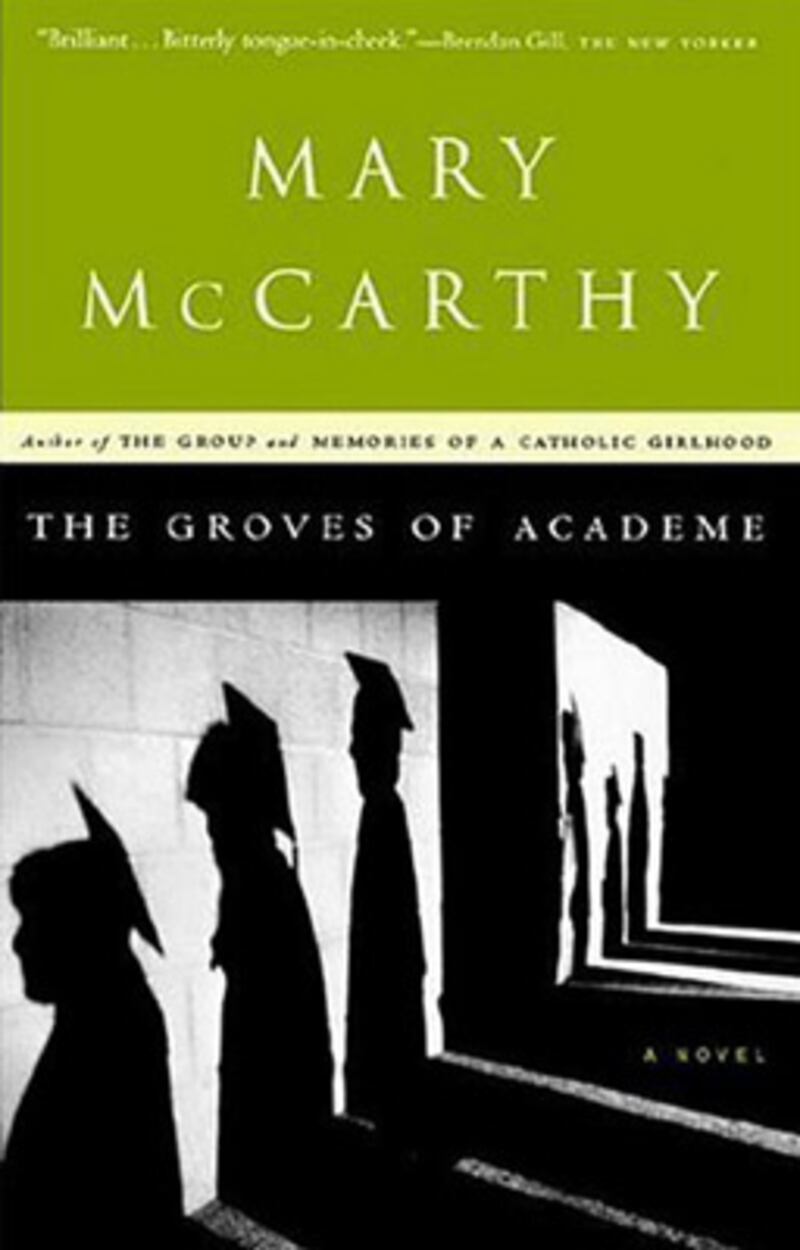
Predating even Lucky Jim, Mary McCarthy's acerbic satire of progressive education centers on the travails of Henry Mulcahy, a Joyce expert employed by Jocelyn College (an amalgam of Bard and Sarah Lawrence) who learns, at the book's beginning, that his teaching appointment will not be renewed for the following year. Mulcahy begins a series of increasingly desperate maneuvers aimed at keeping his job, and in the process abandons his self-appointed place as the college's embattled free-thinking chief martyr and reveals himself to be grasping, manipulative, and petty. The political scientist Wallace Sayre, around the time of the book's publication, coined a phrase most commonly attributed to Dr. K: "The politics of the university are so intense because the stakes are so low." Sayre may have been more succinct, but that doesn't mean you should miss McCarthy.
By Vladimir Nabokov
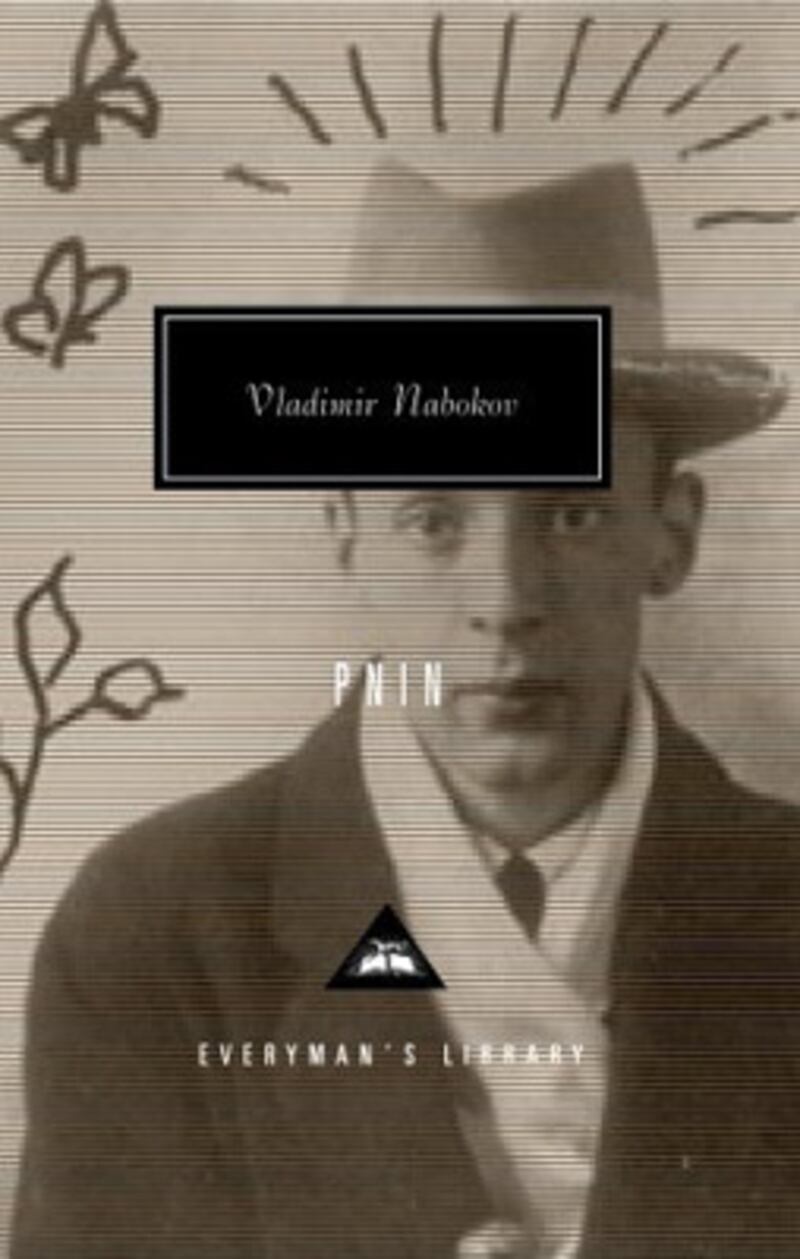
Timofey Pnin (or Puh-neen, in the local dialect) is perhaps the only one of Nabokov's protagonists who enjoys his creator's wholehearted love: a Russian émigré teaching his mother tongue to various horrifying students ("Josephine Malkin, whose grandparents had been born in Minsk; Charles McBeth, whose prodigious memory had already disposed of ten languages and was prepared to entomb ten more; and languid Eileen Lane, whom somebody had told that by the time one had mastered the Russian alphabet one could practically read 'Anna Karamazov' in the original.") at rustic, dispiriting Waindell College. Pnin's misadventures in class, bumbling relationship to his brilliant son, devotion to his unfaithful wife, and passionate commitment to his own past are comic merely on their surface. The (literally unspeakable) pain caused Pnin by the violent, spiritually philistine destruction of his homeland at the hands of revolutionary socialists Nabokov reveals only gradually and in brief glimpses. Full revelation would, the author seems to be saying, break the reader's heart as it has broken Pnin's—beyond any hope.
By Richard Russo

Richard Russo is not known primarily as a satirist, but he has produced one unquestionable entry in the genre: Straight Man, whose narrator William Henry Devereaux, Jr.—Hank to friend and enemy alike—teaches English at a shabby private college in Pennsylvania in the middle 1990s. Devereaux is, it turns out, the perfect lens for Russo to take on one of his favorite, visited-and-revisited subjects: the hard-to-avoid mediocrity of contemporary American life (which reached perhaps a nadir in those becalmed years), incarnated here in Devereaux's insufferable colleagues, his opportunistic professor father, and his own disconnectedness from more or less everything. Russo is no Nabokov, to be sure, but if the comedy here is clumsier, and the language less balletic, the pathos is no less real. Also: you have to admire a man who threatens on a local news affiliate to murder one goose per day until his departmental budgetary demands are met.
By John Williams

John Williams co-won the National Book Award in 1973 (with John Barth) for his epistolary novel Augustus, about Octavius Caesar. This laurel was not, however, enough to secure his earlier works any permanent renown in American literature, expect perhaps as perennial candidates for rediscovery (as Morris Dickstein once observed). Stoner is the melancholy story of its titular character William Stoner, who discovers as a college freshman that he is hopelessly devoted to the cause of English literature. As an adult professor, however, he discovers that he hopelessly unsuited to academic life—and to life in general. Stoner differs from most novels of the academy in that it is not, in its basic structure, comic: the humiliations visited upon young William are of the sordid, Richard-Yates variety (without even the amnesic properties of alcohol as a salve), and they only increase and worsen as he ages. An affair that blossoms in his 40s and is quickly squelched by a departmental rival serves as his single true illumination. And yet, somehow, Stoner endures. Not quite a tragedy. Call it a novel of the stoic.
The razor blade of life, indeed. There nothing more to say. Except perhaps an injunction to my fellow emergent adults: remember your larval years!

